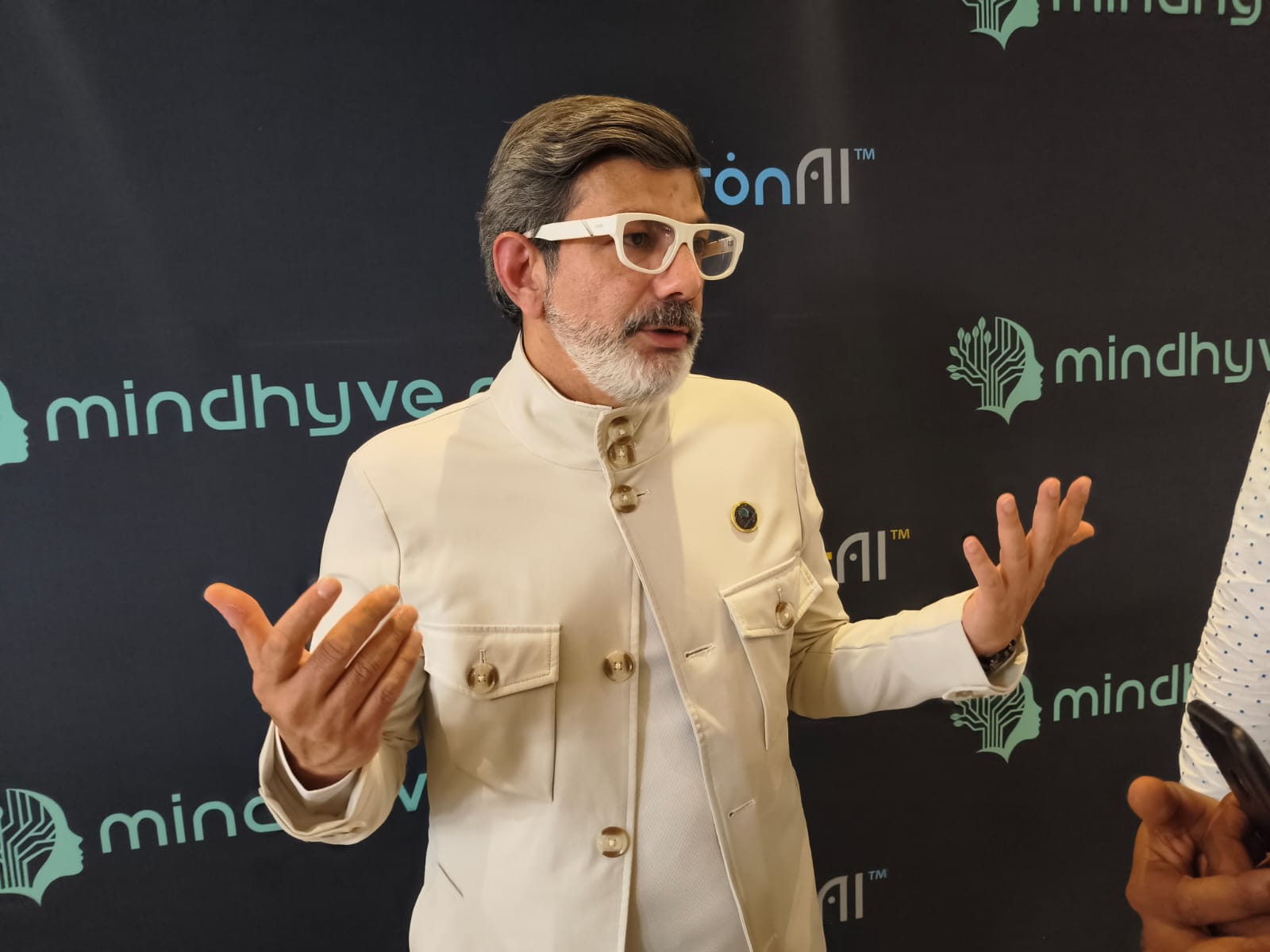 ChironAI developer Bill Faruki, who is the founder and CEO of MindHYVE.ai in Mombasa on August 27, 2025/ BRIAN OTIENO
ChironAI developer Bill Faruki, who is the founder and CEO of MindHYVE.ai in Mombasa on August 27, 2025/ BRIAN OTIENOKenya could soon adopt an intelligence platform for medicine, which will be acting as a physician’s assistant.
The platform, called ChironAI, is an agentic artificial intelligence system for clinical intelligence which is designed to be used by licensed medical practitioners.
Agentic AI refers to artificial intelligence systems capable of operating with autonomy, initiative and adaptability to achieve goals, rather than just reacting to commands.
These systems can independently make decisions, plan multi-step tasks, learn from experience, and utilize tools to execute actions in dynamic environments, requiring minimal human intervention.
“It assists a physician in doing what a physician does, which is doing intakes for patients, after the intake attempting to recommend additional diagnostics for the patient, taking those diagnostics - blood works, X-rays, or otherwise – and then doing a diagnosis,” Bill Faruki, the developer of ChironAI said on Wednesday in Mombasa.
He spoke during a presentation to potential buyers of the system, including the Kenyan government, in Mombasa.
Faruki, who is also the founder and CEO of MindHYVE.ai, said ChironAI also does alternative diagnosis before determining what a patient’s condition is or what they are suffering from, and can recommend further action including surgery, medical treatment or sending the patient home.
ChironAI was built based on the agentic agent, Chiron, which was created and brought to life in an agentic system through a simple web-based dashboard that a doctor can use.
The system, if adopted, would significantly lower the cost of healthcare and improve outcomes for professionals in health.
Developing countries have low patient-physician ratio because of the high cost of doctors’ services, with Kenya having one doctor for 10,000 – 12,0000 patients.
The average cost to see a doctor in Kenya varies, but one can expect to pay between Sh1,440 and Sh4,000 for a general practitioner and Sh2,980 and Sh6,000 for a specialist, according to recommended fee guidelines from 2020.
These cover costs for consultations, nurse, lab, rent of a premises, among others.
“Because Chiron does the work of everybody, you can have more patients treated in the same hour. If a doctor can only see one patient an hour, Chiron can see 10 patients per hour.
“Economies of scale then creep in and the cost is lowered,” Faruki said.
He said with Chiron all other staff are not needed meaning there will be lower cost of operations which will in turn bring down the cost of medication.
“Also the doctor doesn’t need to spend so much time (on a patient) when Chiron can do the bulk of the work,” Faruki said, stressing that that is for simple cases.
For more complex cases like cancer, he said, Chiron cuts the time needed to see specialists who are not easily available and patients sometimes have to wait for months to see a specialist doctor.
He said Chiron also ensures more accurate diagnosis and more effective treatment.
It is currently being used by physicians in America but only in a beta capacity because production hasn’t been rolled out yet.
“In fact, today, actually, the version I demonstrated is a beta version not the production version,” Faruki said.
Mary Kerema, the ICT, e-government and digital economy secretary in the Ministry of Information, Communication and Digital Economy, said the government has to ensure there are regulatory frameworks, standards and guidelines to ensure quality and safeguard patients before adopting any AI solution in health.
“Because this is about life. You make a mistake, (and) the person is no more,” Kerema said.
She said the government will not rely solely on AI systems for treating patients.
“We will ensure there is the human part, where the human doctor will deduce whether there is correct diagnosis.
“Because if you just give an AI agent to prescribe, diagnose or propose the kind of medication to give, then we are bound to really mess our citizens,” Kerema said.
The government has already started the journey to ensure there is an AI policy, strategy, standards, guidelines and data protection sovereignty.
She said this is to ensure proper use of AI agents and that the citizen’s life is taken care of.
“We are not going to use the agents in isolation. We will look at the end to end, how do we safeguard our citizens?” Kerema said.
She said Kenya needs to domesticate all the AI solutions to the country’s own needs in consideration of culture and beliefs so as not to injure the human aspect.
“The AI strategy has already been launched in the country and we are now developing the policy, which will be ready before the end of this financial year,” she said.
The AI principles have also been developed and they only need validation from stakeholders.
The digital public infrastructure framework, which will bring coherence in the way systems and solutions in the country are deployed, is also being developed.
“Although we are running to adopt technology, we are not doing it in a coordinated flow because in technology implementation, there is a new era of digital public infrastructure where you have to systematically build the blocks,” the ICT secretary said.
Ends...
Instant Analysis:
AI is increasingly becoming part of everyday life in Kenya, serving as a tool for information gathering, research, and even economic opportunities.
Some advanced AI systems generate artwork that street vendors print, frame, and sell, while major companies like Safaricom have integrated AI into their operations, including the development of chatbots like ‘Zuri.’
ChironAI developer Bill Faruki, who is the founder and CEO of MindHYVE.ai in Mombasa on Wednesday / BRIAN OTIENO











